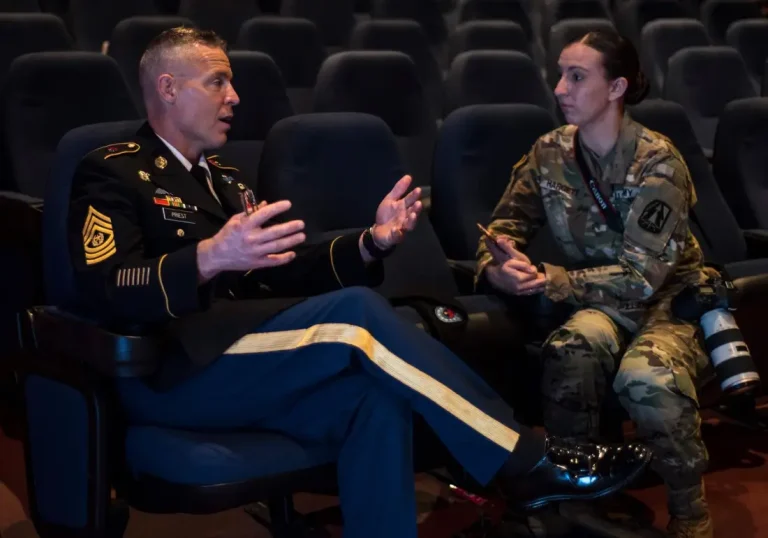The Photo Frame’s Secret: When Love Hides in Plain Sight
How a grandmother’s wisdom protected her most precious legacy from those who would squander it
Chapter One: The Foundation of Love
Thomas Mitchell’s earliest memory wasn’t of his mother’s voice or his first toy, but of his grandmother Grace stirring oatmeal on a cold Tuesday morning when he was six years old. The kitchen in her modest ranch-style home smelled of cinnamon and vanilla, and sunlight streamed through gingham curtains that she had sewn herself decades earlier. It was the morning after his mother had dropped him off with a hastily packed duffel bag and a promise to “get things sorted out” that everyone understood would never be fulfilled.
Grace Mitchell was seventy-two years old when she took in her youngest grandson, but she approached the responsibility with the energy and determination of someone half her age. A retired elementary school teacher who had spent forty years shaping young minds, she understood that children needed structure, consistency, and unconditional love to thrive. Thomas, wounded by abandonment and confusion, needed all three in abundance.
The house at 847 Maple Street became more than just Thomas’s new address—it became his sanctuary. Grace transformed the small spare bedroom into a space that celebrated childhood wonder while providing the security that comes from knowing you belong somewhere. The walls were painted a cheerful blue, and she hung artwork that Thomas created at school alongside photographs of family members who had loved him before he was old enough to understand what love meant.
Grace’s daily routines became the rhythm of Thomas’s childhood. Every morning, she would wake him with gentle patience, help him choose clothes appropriate for the weather, and ensure he ate a nutritious breakfast before walking him to the bus stop. Every afternoon, she would be waiting when he returned, ready to hear about his day and help with homework that sometimes challenged her as much as it challenged him.
The neighborhood where they lived was modest but safe, populated by working-class families who had lived there for generations. Grace knew everyone by name and made sure Thomas understood that he was part of a community that would look out for him. She taught him to wave to elderly neighbors, to offer help when he saw someone struggling with groceries, and to understand that being a good neighbor was both a privilege and a responsibility.
Thomas’s mother, Linda, would appear sporadically throughout his childhood—usually when she needed money, a place to stay between relationships, or someone to watch Thomas while she pursued the latest romantic opportunity that would surely solve all her problems. Grace would accommodate these visits with polite dignity, but Thomas could sense her disapproval of Linda’s lifestyle and her concern about the impact of such instability on a growing child.
His sister Rebecca, four years older and already hardened by their family’s dysfunction, viewed Thomas with a mixture of resentment and indifference. She blamed him for their mother’s increased chaos and saw Grace’s devotion to him as favoritism that confirmed her own unworthiness. Rebecca’s visits to Grace’s house were infrequent and tense, marked by arguments about money, supervision, and responsibilities that she felt were unfairly distributed.
Chapter Two: Building Character
As Thomas grew from a confused six-year-old into a confident teenager, Grace’s influence shaped every aspect of his development. She attended every parent-teacher conference, cheered at every football game, and helped with every school project that required adult guidance. Her presence was so consistent and supportive that many of Thomas’s friends assumed she was his mother, an assumption he never bothered to correct.
Grace’s approach to parenting was both old-fashioned and progressive. She believed in hard work, personal responsibility, and treating others with respect, but she also encouraged Thomas to question authority when necessary and to think critically about the world around him. She taught him to cook, to manage money, to fix things that were broken, and to approach challenges with creativity rather than defeat.
The summer when Thomas turned fourteen, Grace enrolled him in a youth employment program at the local community center. While other teenagers were sleeping late and playing video games, Thomas was learning the value of work by helping with landscaping projects and summer camp activities. Grace insisted that he save half of his earnings and use the other half for purchases he wanted to make, teaching him early lessons about financial responsibility and delayed gratification.
“Money isn’t everything,” Grace would tell him as they reviewed his savings account statements, “but understanding how to manage it properly will give you choices that other people don’t have.”
High school brought new challenges as Thomas navigated the social complexities of adolescence while living with a grandmother in a neighborhood where most of his peers came from traditional nuclear families. Grace handled these challenges with the same wisdom she brought to everything else, giving Thomas space to make mistakes while ensuring he understood the consequences of his choices.
When Thomas expressed interest in playing football, Grace researched the program thoroughly, attended information meetings, and made sure he understood the commitment required. When he struggled with algebra, she hired a tutor even though it meant sacrificing her own small luxuries. When he wanted to attend the senior prom, she took him shopping for a tuxedo and helped him plan how to ask his date appropriately.
“I may not be your mother,” Grace told him on the night of prom as she helped him with his boutonniere, “but I’m proud to be the one who raised you into the young man you’ve become.”
Thomas graduated from high school with a 3.7 GPA and a football scholarship to the state university. As he prepared to leave for college, both he and Grace understood that their daily life together was ending, but their bond would continue to be the foundation of his adult decisions.
Chapter Three: The Independent Years
College provided Thomas with his first real taste of independence, but he never went more than a week without calling Grace to share his experiences and seek her advice. She had prepared him well for the academic challenges, but she also provided emotional support as he navigated the social and financial pressures that came with higher education.
Grace’s financial situation was modest—her teacher’s pension and Social Security provided enough for comfortable living but little extra. Despite this, she somehow always managed to send Thomas care packages filled with homemade cookies and small amounts of spending money that she insisted she could afford. Thomas later learned that she had been taking on substitute teaching assignments and selling handmade crafts to supplement her income specifically to support his college expenses.
“Education is the one thing no one can ever take away from you,” Grace would remind him during their weekly phone calls. “Everything else in life can be lost or stolen, but knowledge and the ability to think critically will serve you no matter what circumstances you face.”
Thomas majored in business administration with a focus on nonprofit management, inspired by Grace’s years of community service and her belief that success should be measured by positive impact rather than just financial gain. He graduated with honors and secured a position with a regional charitable organization that worked to provide educational opportunities for underprivileged children.
The irony wasn’t lost on either Thomas or Grace that he had chosen a career path that would never make him wealthy but would allow him to help children who faced challenges similar to those he had experienced. Grace’s pride in his choice was evident every time she spoke about his work to neighbors and friends.
After college, Thomas moved to a city three hours away from Grace’s house, close enough for regular visits but far enough to establish his own independent life. He rented a small apartment, bought a reliable used car, and began building the kind of stable, purposeful life that Grace had always envisioned for him.
Chapter Four: The Gathering Storm
As Thomas entered his mid-twenties, he began to notice subtle changes in the family dynamics that had remained relatively stable throughout his childhood and adolescence. Linda, now in her fifties, seemed increasingly focused on Grace’s modest assets—the house, the car, and whatever savings she might have accumulated over the years.
“Mom’s getting older,” Linda would mention during their infrequent conversations. “Someone should probably start thinking about what’s going to happen to her stuff when she’s gone.”
Rebecca, who had struggled through a series of failed relationships and unstable employment, also began showing increased interest in Grace’s financial situation. She would visit more frequently than she had in previous years, but her conversations invariably turned to questions about Grace’s will, her insurance policies, and her plans for managing her assets as she aged.
Grace, meanwhile, remained as sharp and independent as ever. At eighty-six, she still maintained her own household, drove her fifteen-year-old Honda Civic to church and grocery shopping, and volunteered at the local library’s literacy program. She had developed mild arthritis that slowed her movements slightly, but her mind remained clear and her spirit undimmed.
Thomas visited Grace every few weeks, and their relationship continued to be characterized by mutual respect, genuine affection, and easy conversation. They would work in her garden together, cook meals that reminded him of his childhood, and talk about everything from his work challenges to her memories of his grandfather, who had died when Thomas was too young to remember him.
During these visits, Thomas occasionally noticed tension when Linda or Rebecca called or visited. Grace would become more guarded in her responses, and Thomas sensed that conversations were taking place that made her uncomfortable. When he asked about this, Grace would deflect with gentle humor, but he could see that something was troubling her.
“Some people,” Grace said cryptically during one of their garden sessions, “love you for who you are, and some people love you for what you have. The older you get, the easier it becomes to tell the difference.”
Chapter Five: The Final Months
The call came on a Tuesday morning in October, just as Thomas was preparing for an important presentation at work. Grace had suffered a stroke while working in her garden, and a neighbor had found her several hours later and called for emergency assistance.
Thomas rushed to the hospital, where he found Grace conscious but significantly weakened. The stroke had affected her speech and mobility, but her eyes lit up with recognition and love when she saw him. Over the following weeks, as she moved from the hospital to a rehabilitation facility and eventually back to her own home with assistance, Grace made it clear that she wanted to spend her remaining time in familiar surroundings.
The next six months were both precious and heartbreaking for Thomas. He arranged to work remotely as much as possible, staying with Grace several days each week and coordinating her care with visiting nurses and physical therapists. They had conversations about life, love, regret, and gratitude that deepened their already profound bond.
Linda and Rebecca also increased their presence during this period, though Thomas noticed that their attention seemed focused more on Grace’s possessions and paperwork than on her comfort and wellbeing. They asked pointed questions about her financial accounts, pressured her to update her will, and made suggestions about how her assets should be distributed that clearly reflected their own interests rather than her wishes.
Grace handled these pressures with characteristic dignity, but Thomas could see that they were wearing on her. She began keeping important documents in a small locked box and seemed reluctant to discuss financial matters when Linda or Rebecca were present.
“I want you to know,” Grace told Thomas during one of their quiet afternoons together, “that everything I’ve done has been about love. Some people might not understand that right away, but love finds a way to make itself known.”
Grace passed peacefully in her sleep on a Thursday morning in late spring, with Thomas holding her hand and telling her stories about the garden they had planted together just weeks earlier.
Chapter Six: The Reading of the Will
The funeral service was held at the Methodist church where Grace had been a member for over fifty years. The sanctuary was filled with former students, fellow teachers, neighbors, and community members whose lives she had touched through her decades of service and kindness. Thomas delivered a eulogy that celebrated Grace’s life as an educator, caregiver, and community pillar, fighting back tears as he described what she had meant to him personally.
The reception following the service was marked by countless stories from people who remembered Grace’s influence on their lives. Former students, now adults with children of their own, shared memories of her patience and encouragement. Fellow teachers recalled her innovation and dedication. Neighbors spoke of her kindness and reliability.
But underneath the genuine grief and celebration of Grace’s life, Thomas sensed undercurrents of tension as Linda and Rebecca made pointed comments about settling Grace’s estate quickly and efficiently. They had already begun discussing plans for selling the house and dividing the proceeds, speaking as if these decisions were foregone conclusions.
The formal reading of Grace’s will took place one week after the funeral in the office of Walter Richardson, the elderly attorney who had handled Grace’s legal affairs for over thirty years. Thomas sat between Linda and Rebecca in Richardson’s modest conference room, surrounded by law books and family photographs that spoke of decades of service to the community.
Richardson, a contemporary of Grace’s who had known the family for years, handled the proceedings with appropriate solemnity while maintaining the kind of professional detachment that such occasions require.
“Grace was very specific about her intentions,” Richardson began, consulting the documents before him. “She updated her will just six months ago, and she was quite clear about how she wanted her assets distributed.”
The major bequests were straightforward and devastating for Thomas to hear:
The house at 847 Maple Street, Grace’s home for over forty years and the sanctuary where Thomas had grown from boy to man, was left to Linda. The will specified that Linda could live in the house or sell it as she saw fit, with no restrictions or conditions attached to the inheritance.
Grace’s 2008 Honda Civic, reliable transportation that had served her faithfully through her senior years, was bequeathed to Rebecca. Like the house, it came with no strings attached and could be kept or sold according to Rebecca’s preferences.
Various smaller items—furniture, jewelry, household goods—were distributed between Linda and Rebecca according to a detailed list that Grace had prepared.
And for Thomas, the grandson who had lived with Grace for twelve years and maintained a close relationship with her until her death, the inheritance was strikingly modest: a single framed photograph.
“The item is described as ‘our photograph from the zoo visit, taken when Thomas was eight years old,’” Richardson read from the will. “It’s currently hanging in the living room.”
Thomas sat in stunned silence as Linda and Rebecca exchanged glances that could only be described as triumphant. They had received assets worth tens of thousands of dollars, while he had been left with a photograph that had sentimental value but no monetary worth.
“That’s it?” Thomas asked, his voice barely above a whisper.
“That appears to be the extent of your inheritance, yes,” Richardson confirmed gently.
As they left the attorney’s office, Linda and Rebecca made no effort to hide their satisfaction with the will’s provisions. They were already making plans for appraising the house, clearing out its contents, and putting it on the market as quickly as possible.
Thomas drove back to his apartment in a state of shock and confusion that gradually gave way to hurt and anger. How could the woman who had raised him, who had sacrificed so much for his wellbeing, have left him with so little? Had he misunderstood the nature of their relationship? Had Grace’s love been less profound than he had believed?
Chapter Seven: The Discovery
The next morning, Thomas returned to Grace’s house to collect his modest inheritance before Linda began the process of clearing out the contents. The house already felt different—emptier somehow, despite the fact that all of Grace’s possessions remained exactly where she had left them. Linda had given him permission to take the photograph, along with any other small mementos he might want, as long as they had no significant monetary value.
Thomas found the photograph hanging in its familiar spot on the living room wall, next to the front window where Grace used to sit in her recliner and watch the neighborhood children walk home from school. The image captured a moment from one of their happiest days together—an expedition to the city zoo when Thomas was eight years old, complete with missing front teeth and an ice cream-stained shirt that Grace had somehow managed to clean for the photograph.
Looking at the picture brought back a flood of memories from that day and countless others they had shared. Grace’s decision to leave him this particular photograph made sense from a sentimental perspective, but it still felt inadequate compared to the substantial inheritances his mother and sister had received.
Thomas carefully removed the photograph from the wall and carried it back to his apartment, where he set it on his kitchen table and stared at it while wrestling with feelings of abandonment and confusion. The afternoon sunlight streaming through his apartment window highlighted small imperfections in the frame—tiny scratches and worn spots that spoke of decades of gentle handling and careful placement.
As evening approached, Thomas decided to reframe the photograph using a newer frame he had purchased for another picture. The old frame, while sturdy, showed its age, and he thought Grace would appreciate knowing that their special photograph was being preserved with care.
When he carefully removed the backing from the frame, Thomas noticed something unexpected: a small piece of paper that had been taped to the back of the photograph itself. His hands trembled slightly as he peeled away the tape and unfolded what appeared to be a handwritten letter.
Chapter Eight: Grace’s True Gift
The letter was written in Grace’s familiar handwriting, though the script was slightly shakier than Thomas remembered from earlier years:
My dearest Thomas,
If you are reading this letter, then you have found the real inheritance I left for you. I could not bear to let your mother and sister know about this gift, because I know they would find a way to claim it for themselves or pressure you to share it against your wishes.
Hidden inside this envelope, you will find a key to safe deposit box #247 at First National Bank downtown. Mr. Richardson, my attorney, has the necessary documentation to give you access. Everything I have saved over the years for your future—including the college fund I mentioned but never fully explained, some modest investments I made in your name, and a few other items I wanted you to have—is waiting for you there.
The amount is not enormous by some standards, but it should be enough to help you buy a home, start a family, or pursue opportunities that might otherwise be beyond your reach. More importantly, it represents every sacrifice I made gladly because I love you and believe in the man you have become.
I left your mother the house and your sister the car because they needed something they could see and touch and sell if necessary. But for you, I wanted to leave something that represented our relationship—love, trust, and faith in your character. I knew you would treasure our photograph regardless of its monetary value, and I knew you would eventually discover this letter because you are the kind of person who takes care of the things that matter to you.
Please know that every choice I made was motivated by love and my desire to protect what we built together. You are my greatest achievement, not because of anything you accomplished, but because of who you chose to become despite the challenges you faced.
Use this gift wisely, as I know you will. And remember that the most valuable inheritance I could give you was never money or property—it was the knowledge that you are deeply loved and thoroughly believed in.
With all my love and pride, Grandma Grace
P.S. There is one more thing in the safe deposit box that I hope will make you smile. You’ll understand when you see it.
Thomas read the letter three times, tears streaming down his face as the full scope of Grace’s wisdom and love became clear. She had understood Linda and Rebecca’s motivations perfectly and had crafted a solution that protected Thomas’s inheritance while giving them what they wanted most.
Chapter Nine: The Safe Deposit Box
The next morning, Thomas met with Walter Richardson, who confirmed that Grace had indeed established a safe deposit box in Thomas’s name and that all the legal documentation was in order. Richardson’s expression suggested that he had been aware of Grace’s plan, though he maintained appropriate professional discretion about the details.
“Your grandmother was one of the wisest people I’ve ever known,” Richardson said as they walked toward the bank. “She understood human nature in ways that most people never do.”
At First National Bank, Thomas presented his identification and the key Grace had hidden behind their photograph. The bank manager, who remembered Grace from her decades of business with them, personally escorted Thomas to the safe deposit box area and gave him privacy to examine his inheritance.
Inside the box, Thomas found documents that revealed the extent of Grace’s planning and sacrifice. She had been setting aside money for him since he was a child, sometimes just a few dollars from her modest pension, sometimes larger amounts when she took on substitute teaching assignments or sold crafts at local fairs.
The investment statements showed that Grace had been remarkably savvy about growing these savings over the years, consulting with financial advisors and making conservative but effective choices that had allowed the money to grow steadily. The total amount was substantial enough to provide Thomas with genuine financial security—not wealth, but the kind of foundation that would allow him to make choices based on his values rather than just his immediate needs.
But the most touching item in the safe deposit box was a small wrapped package with a note attached: “For Thomas, to remember all our adventures together.” Inside was Grace’s engagement ring—a modest but beautiful piece that had belonged to her mother and grandmother before her.
Along with the ring was another letter, much shorter than the first:
This ring has been in our family for three generations. I want you to have it not to sell, but to give to someone special when you find the kind of love that I shared with your grandfather. When that day comes, know that both of us will be watching and celebrating with you.
Chapter Ten: Understanding Grace’s Wisdom
In the days following his discovery of Grace’s true inheritance, Thomas began to understand the full scope of her wisdom and the depth of her love for him. She had known exactly how Linda and Rebecca would react to her will, and she had given them inheritances that satisfied their immediate desires while protecting what she really wanted Thomas to have.
The house that Linda inherited came with a mortgage that had three years remaining, property taxes that had been increasing steadily, and maintenance issues that would require significant investment. Within two months of Grace’s death, Linda had sold the property and used most of the proceeds to pay off her own debts, leaving her with less money than she had anticipated.
Rebecca’s inheritance of the car provided temporary transportation, but the aging Honda required repairs that cost more than the vehicle was worth. She eventually sold it to a used car dealer for a fraction of its perceived value and used the money for immediate expenses that provided no long-term benefit.
Meanwhile, Thomas found himself in possession of resources that had been carefully preserved and strategically invested to provide maximum long-term benefit. Grace’s financial planning had been modest but effective, creating a foundation that would support his goals without making him dependent on inherited wealth.
More importantly, Thomas began to understand that Grace’s real gift had never been about money at all. She had given him something far more valuable: the knowledge that he was deeply loved, thoroughly believed in, and carefully prepared for whatever challenges life might bring.
Chapter Eleven: The Ripple Effects
Thomas’s discovery of Grace’s hidden inheritance changed more than just his financial situation—it transformed his understanding of love, family, and the difference between being given things and being given opportunities.
He used part of Grace’s gift to purchase a modest home in a neighborhood similar to the one where he had grown up with her. The house became not just his residence but a place where he could continue Grace’s tradition of hospitality and community engagement.
The remainder of the inheritance went toward expanding his education and creating an emergency fund that provided the kind of security Grace had always wanted him to have. Thomas enrolled in graduate school to earn a master’s degree in nonprofit administration, knowing that Grace would have been proud of his decision to invest in his ability to help others.
He also established a small scholarship fund in Grace’s name at the local high school, designed to help students who, like him, were being raised by grandparents or other relatives. The scholarship wasn’t large, but it represented Thomas’s commitment to continuing Grace’s legacy of supporting young people who needed encouragement and practical assistance.
Epilogue: The True Inheritance
Five years after Grace’s death, Thomas stood in his own living room, looking at the framed photograph that had started it all. The picture now occupied a place of honor on his mantelpiece, surrounded by other mementos from his life with Grace and achievements he had accomplished since her passing.
The photograph served as a daily reminder not just of a happy day at the zoo, but of the profound love and wisdom that had shaped his entire life. Grace’s decision to hide her real gift behind something that appeared insignificant had taught Thomas lasting lessons about the difference between surface appearances and deeper truths.
He had learned that love sometimes protects itself by hiding in plain sight, that wisdom often requires patience to reveal itself, and that the most valuable inheritances are often the ones that can’t be counted or sold.
Thomas never spoke to Linda or Rebecca about what he had discovered in the safe deposit box. Grace’s wisdom had extended even to this detail—she had known that revealing the truth would only create resentment and conflict that would serve no positive purpose.
Instead, Thomas chose to honor Grace’s memory by living according to the values she had taught him and by remembering that every day he was the recipient of an inheritance that was beyond price: the knowledge that he had been raised by someone who loved him unconditionally and believed in his potential even when he doubted it himself.
The photograph remained in its new frame, but Thomas never forgot that the most precious gifts often come disguised as ordinary objects. Grace’s real inheritance wasn’t money or property—it was the understanding that love finds a way to provide for those who need it most, even when that provision requires patience, wisdom, and faith to fully appreciate.
In a world that often measured value by immediate visibility and material worth, Grace had taught Thomas that the most important legacies are often the ones that reveal themselves slowly, requiring love and attention to fully understand their significance.
Her greatest gift wasn’t what she left him—it was who she had helped him become.

Emily Johnson is a critically acclaimed essayist and novelist known for her thought-provoking works centered on feminism, women’s rights, and modern relationships. Born and raised in Portland, Oregon, Emily grew up with a deep love of books, often spending her afternoons at her local library. She went on to study literature and gender studies at UCLA, where she became deeply involved in activism and began publishing essays in campus journals. Her debut essay collection, Voices Unbound, struck a chord with readers nationwide for its fearless exploration of gender dynamics, identity, and the challenges faced by women in contemporary society. Emily later transitioned into fiction, writing novels that balance compelling storytelling with social commentary. Her protagonists are often strong, multidimensional women navigating love, ambition, and the struggles of everyday life, making her a favorite among readers who crave authentic, relatable narratives. Critics praise her ability to merge personal intimacy with universal themes. Off the page, Emily is an advocate for women in publishing, leading workshops that encourage young female writers to embrace their voices. She lives in Seattle with her partner and two rescue cats, where she continues to write, teach, and inspire a new generation of storytellers.









